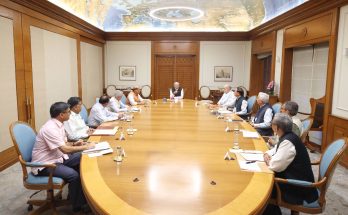
After India dealt a crushing blow to the Pakistani terror factories in Jammu and Kashmir with the scrapping of Article 370 and the reorganization of the state last year, Pakistan appeared to have clawed back into its game in a new avatar but with a more native-sounding brand, The Resistance Front (TRF). According to a latest intelligence report submitted to the government, all recent attacks on the security forces in the valley were carried out by TRF, which is controlled by the handlers of Lashkar-e-Taiba (LeT) in Pakistan and has the full backing of the Imran Khan government.
It’s a deliberate attempt by the Pakistanis to choose a generic title for TRF instead of an Islamic name to give it a local identity and pre-empt any possibility of linking it to the current crop of jihadist forces across the border, a security official said. This has been done to evade detection after India turned on the heat against Islamabad to take action against terrorist leaders and their outfits through the Financial Action Task Force (FATF), which checks money-laundering and terror-financing under the aegis of the UN, the official said.
India had removed Article 370 that gave more autonomy to the erstwhile state before dividing it into the union territories of Jammu and Kashmir and Ladakh. Although the official logic is to streamline governance and development, it almost took the steam out of the separatist movement in the valley as the secessionist leaders grew disillusioned with the sudden change in the political dynamics. The TRF was launched soon after that decision to continue Pakistan’s nefarious designs, said the official.TRF has drawn a majority of its members from LeT, and plans are afoot to launch a new recruitment drive in the valley to join its ranks. Lashkar handlers, Sajad Jatt, Khalid, and Hanzala Adnan, lead its operations in South, Central, and North Kashmir, respectively, the official said.
Due to pressure from the FATF to shut down terrorist camps in its territory, Pakistan changed its tactics to rename its terror exports as an indigenous armed movement. Moreover, the UN proscription of several Pakistan-based terrorists and outfits was a significant setback for the ISI as they could not operate or raise funds as before for terror activities. Consequently, it rebranded its terror networks in the valley as TRF, or the low-profile JK Pir Panjal Peace Forum, the intelligence report said.The recent attacks in Kashmir’s Keran and Handwara sectors in which several Indian security personnel were killed were carried out by TRF. The group announced its involvement through its social media accounts in Pakistan. Officials also said that the ISI has recently stepped up its anti-India campaigns through the social media, especially targeting the annulment of Article 370 and the Citizenship Amendment Act (CAA).
Pakistan’s covert support in these activities unmistakably lays exposed, which echoes in PM Khan’s recent tweet in which he claimed that Kashmir’s problems are homegrown. “The Indigenous Kashmiri resistance against Indian Occupation is a direct consequence of India’s oppression & brutalization of Kashmiris,” he tweeted on May 6.
Author Profile
- India Writes Network (www.indiawrites.org) is an emerging think tank and a media-publishing company focused on international affairs & the India Story. Centre for Global India Insights is the research arm of India Writes Network. To subscribe to India and the World, write to editor@indiawrites.org. A venture of TGII Media Private Limited, a leading media, publishing and consultancy company, IWN has carved a niche for balanced and exhaustive reporting and analysis of international affairs. Eminent personalities, politicians, diplomats, authors, strategy gurus and news-makers have contributed to India Writes Network, as also “India and the World,” a magazine focused on global affairs.
Latest entries
 India and the WorldJune 26, 2025Operation Sindoor: India Sheds Restraint, Rediscovers Utility of Force
India and the WorldJune 26, 2025Operation Sindoor: India Sheds Restraint, Rediscovers Utility of Force India and the WorldJune 23, 2025BRICS summit in Rio to focus on Global South, local currency trade
India and the WorldJune 23, 2025BRICS summit in Rio to focus on Global South, local currency trade Africa InsightsJune 11, 2025New Opportunities in India-Japan Cooperation in Africa
Africa InsightsJune 11, 2025New Opportunities in India-Japan Cooperation in Africa India and the WorldMay 23, 2025Post-Operation Sindoor, India reminds Turkey, China of concerns and sensitivities
India and the WorldMay 23, 2025Post-Operation Sindoor, India reminds Turkey, China of concerns and sensitivities







